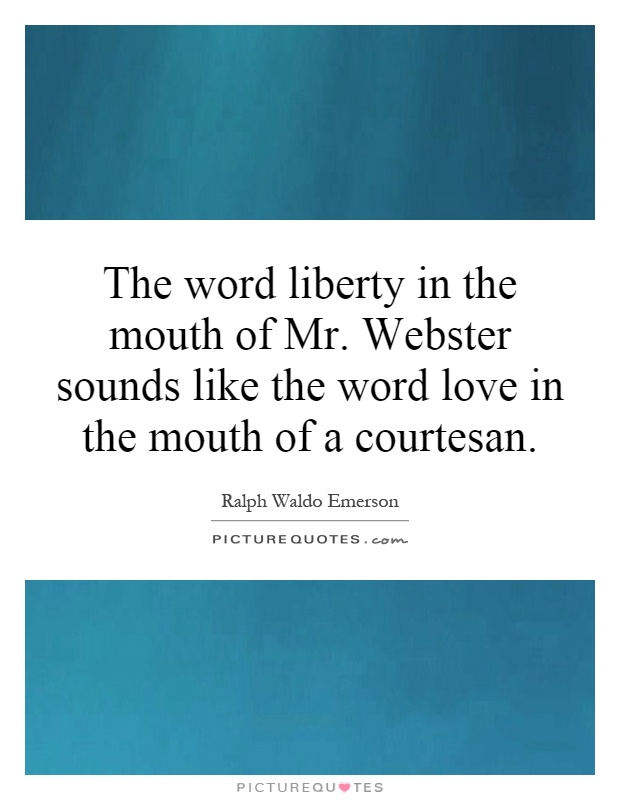The word liberty in the mouth of Mr. Webster sounds like the word love in the mouth of a courtesan

The word liberty in the mouth of Mr. Webster sounds like the word love in the mouth of a courtesan
Ralph Waldo Emerson, a prominent American essayist, lecturer, and poet, was known for his transcendentalist philosophy and his belief in individualism and self-reliance. In his essay "Self-Reliance," Emerson explores the idea of trusting oneself and following one's own instincts rather than conforming to societal norms. He encourages individuals to think for themselves and not be swayed by the opinions of others.In the context of Emerson's philosophy, the quote "The word liberty in the mouth of Mr. Webster sounds like the word love in the mouth of a courtesan" takes on a deeper meaning. Emerson is critiquing the way in which certain words or concepts can be used insincerely or hypocritically by those in power. In this case, he is referring to Daniel Webster, a prominent American statesman and orator known for his defense of the Constitution and his advocacy for individual liberties.
Emerson is suggesting that when someone like Webster speaks of liberty, it may ring hollow or disingenuous, much like the way a courtesan might speak of love. Both liberty and love are powerful and meaningful concepts, but when they are used for personal gain or political expediency, their true value is diminished.
Emerson's critique of Webster and his use of the word liberty is a reflection of his broader skepticism of authority and his belief in the importance of individual integrity and authenticity. He believed that true liberty could only be achieved through self-reliance and a commitment to one's own principles, rather than through the empty rhetoric of politicians or public figures.












 Friendship Quotes
Friendship Quotes Love Quotes
Love Quotes Life Quotes
Life Quotes Funny Quotes
Funny Quotes Motivational Quotes
Motivational Quotes Inspirational Quotes
Inspirational Quotes